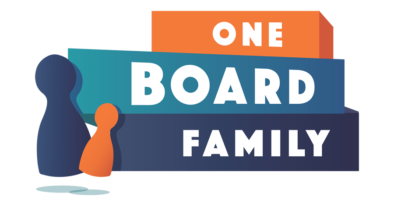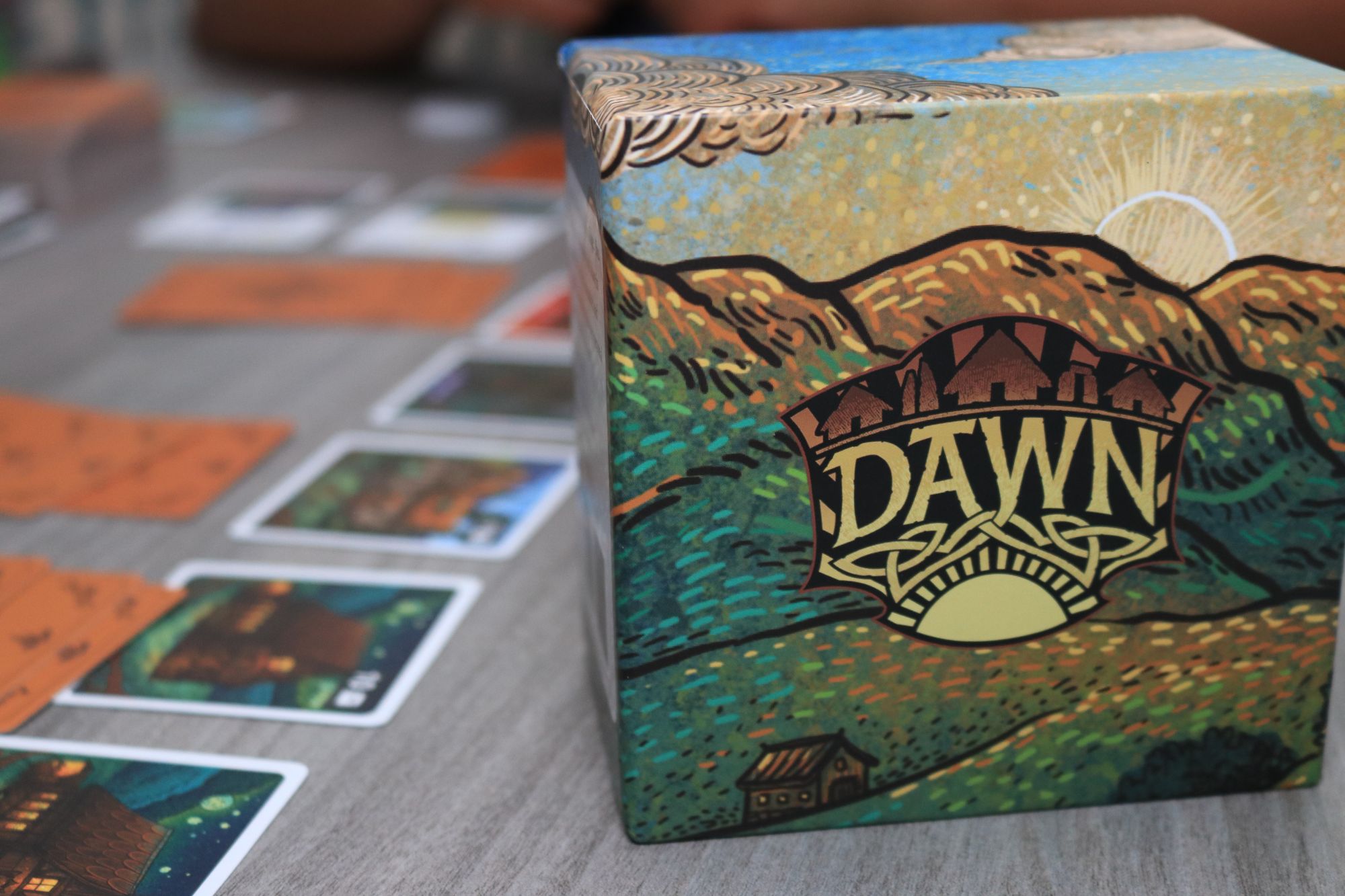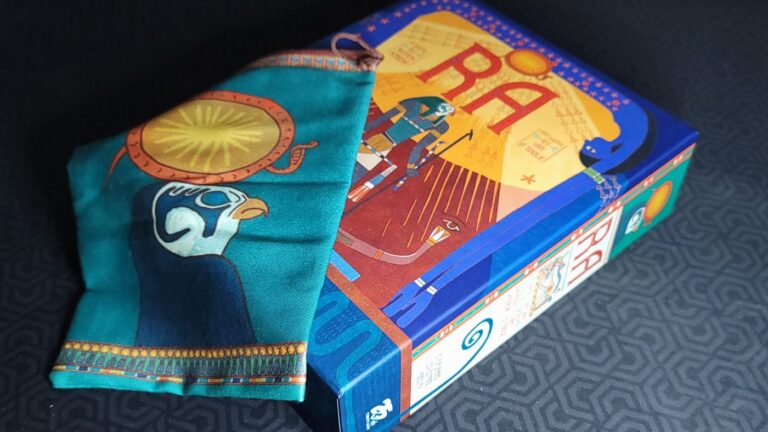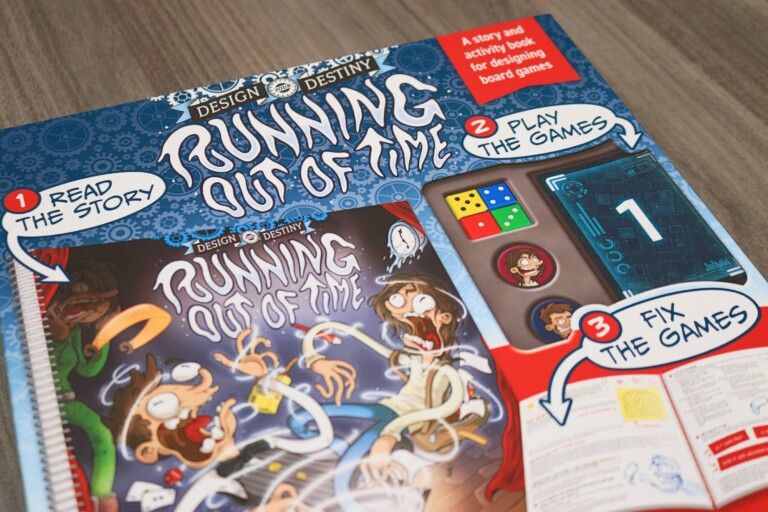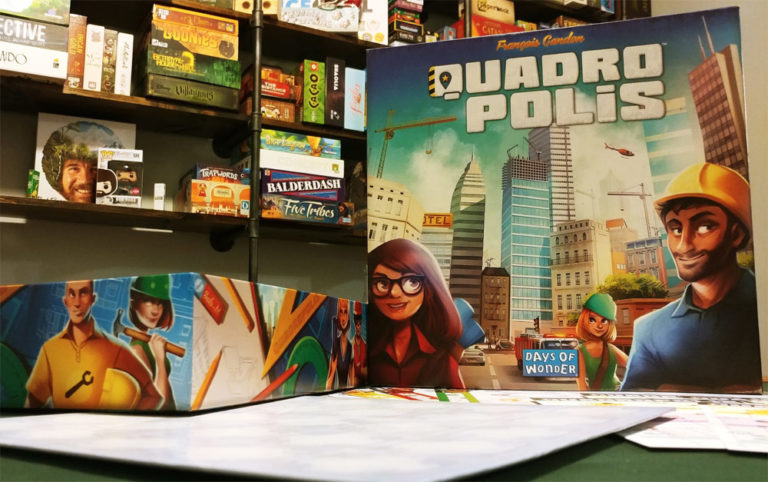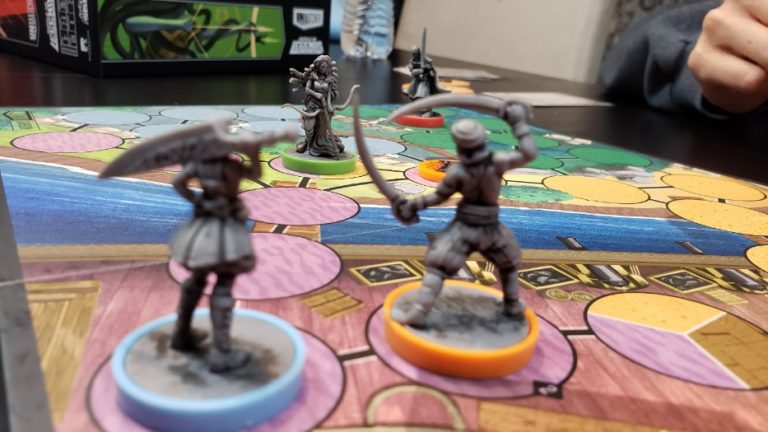Dawn is a semi-cooperative village building game for up to 5 players. This release from Green Meadow Games is not a fully co-op game because there can be a traitor within your community. What’s unique about Dawn is that no one is “designated” a traitor, and the game can be a team effort. All of this is up to you, the player.
The Dawn of Community
The goal of Dawn is to setup a bustling European village and along with “great buildings” at the end of 6 rounds. Each of the first 5 rounds will focus on building structures and defeating threats. In the final round of the game, players focus on completing the 4 great buildings in order to maximize the teams prosperity points. Rounds start with players collecting a hand of 9 cards. Each player begins the game with 2 wound cards but can earn more throughout the game. Wound cards limit the number of resources that a player has on-hand during a round.
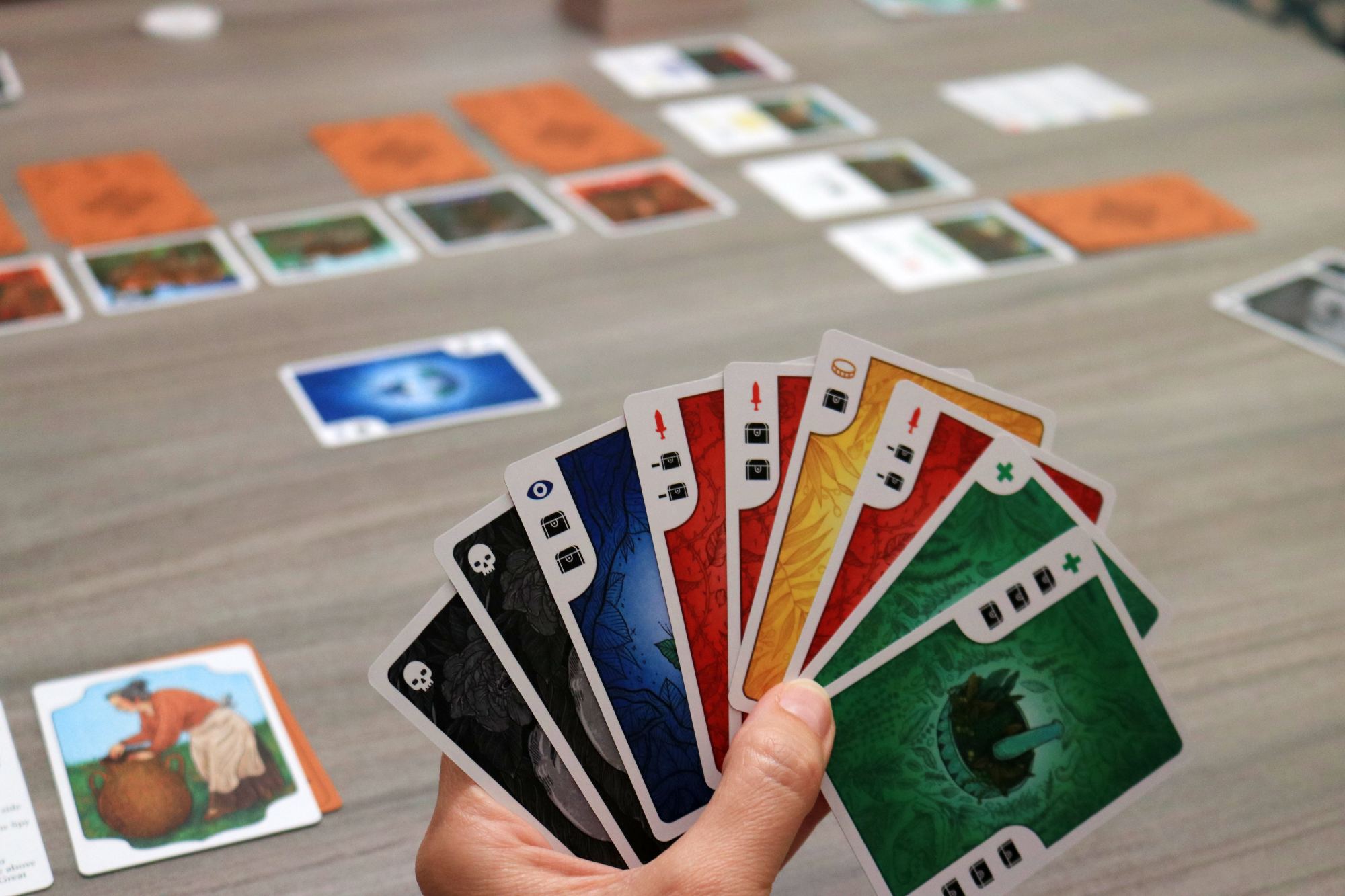
Each of the multi-use resource cards in your hand function in a couple ways.
- Use the card for the action symbol on the card. Each of the 4 suits do something different.
- Play the card face down under a building or threat tile in the center of the table.
- Play the card face down under a great building to contribute toward the end game goals on any of these 4 buildings.
You can play as many cards as you want, or as few cards as you want. Collectively, players are contributing to building tiles using the treasure icons on the cards. Since these cards are played face down, you never fully know if the other players are contributing positive values or negative values to these buildings.
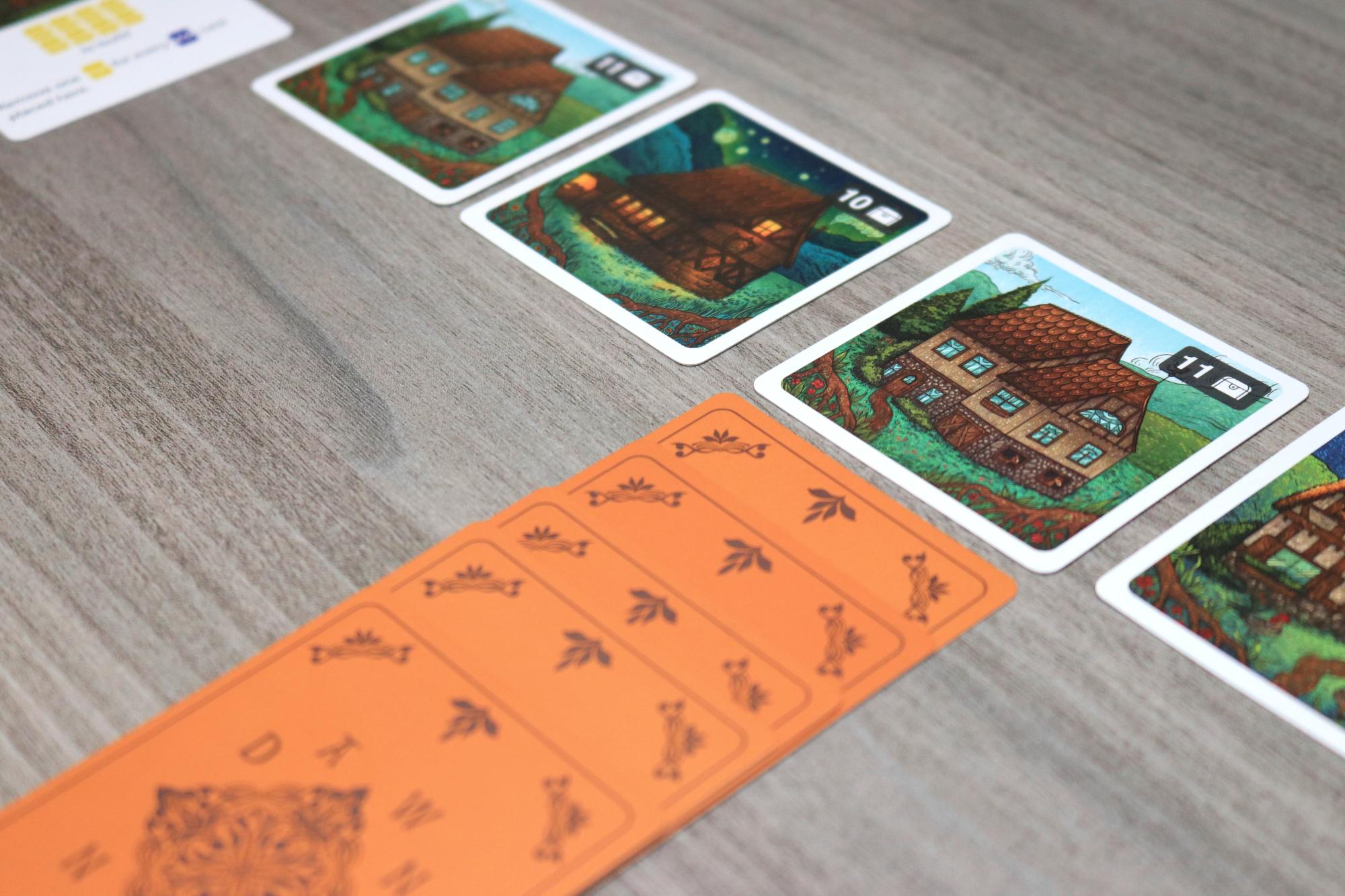
At the end of each round, cards that are played beneath these tiles are shuffled then evaluated to see if they meet the criteria to build that structure. Constructing these buildings will earn prosperity points for the village. When multiple players contribute cards to a single building, it can be easy to hide cards that sabotage the team during the round.
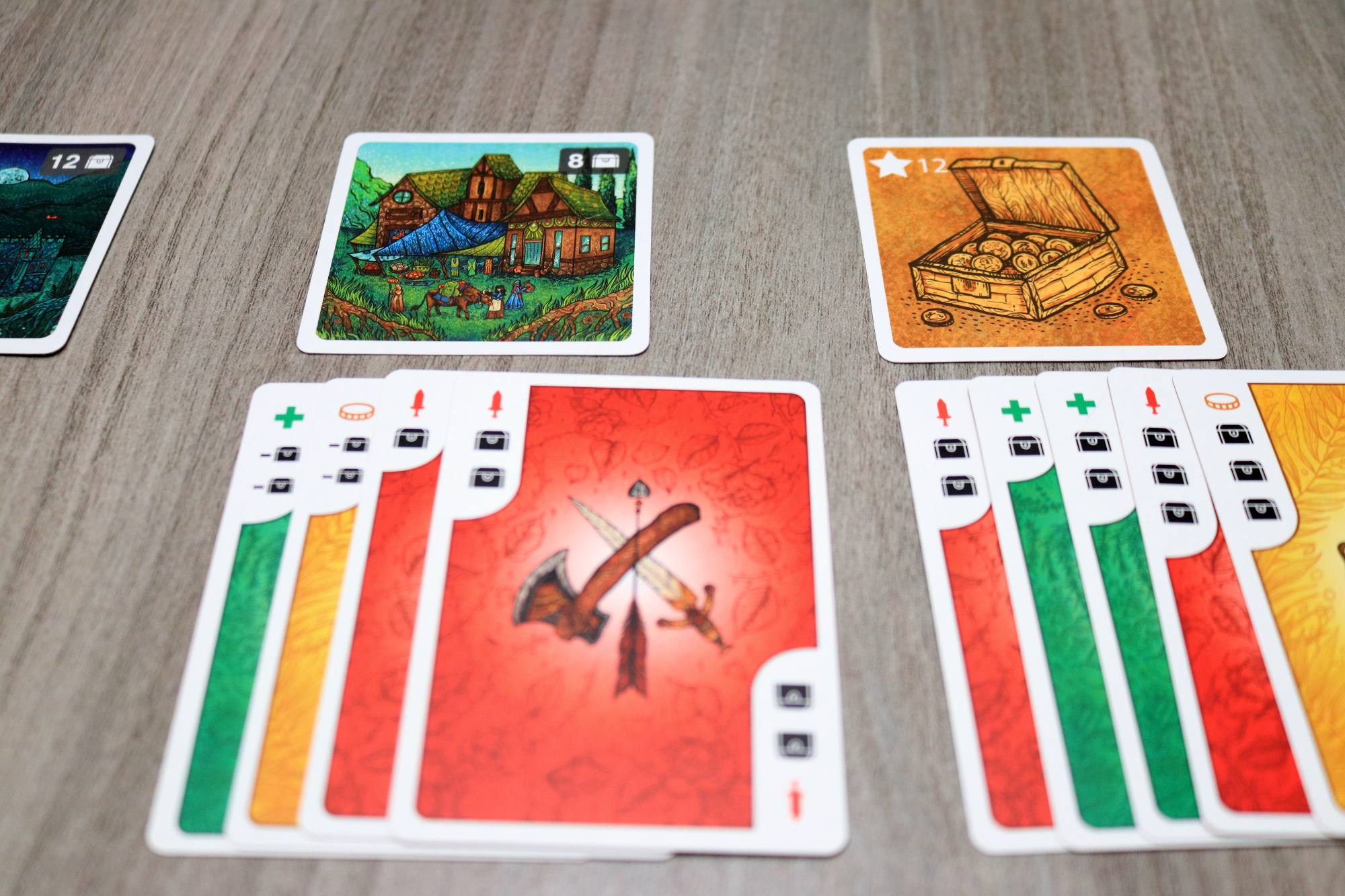
An Enemy Among Us
Just like any new settlement, enemies will come along to ruin your day. Threat tiles can deal wound cards to players or destroy buildings that have been built. Each enemy card requires a specific number of cards from a specific suit. Players need to work together to combat these threat tiles before the end of the round.
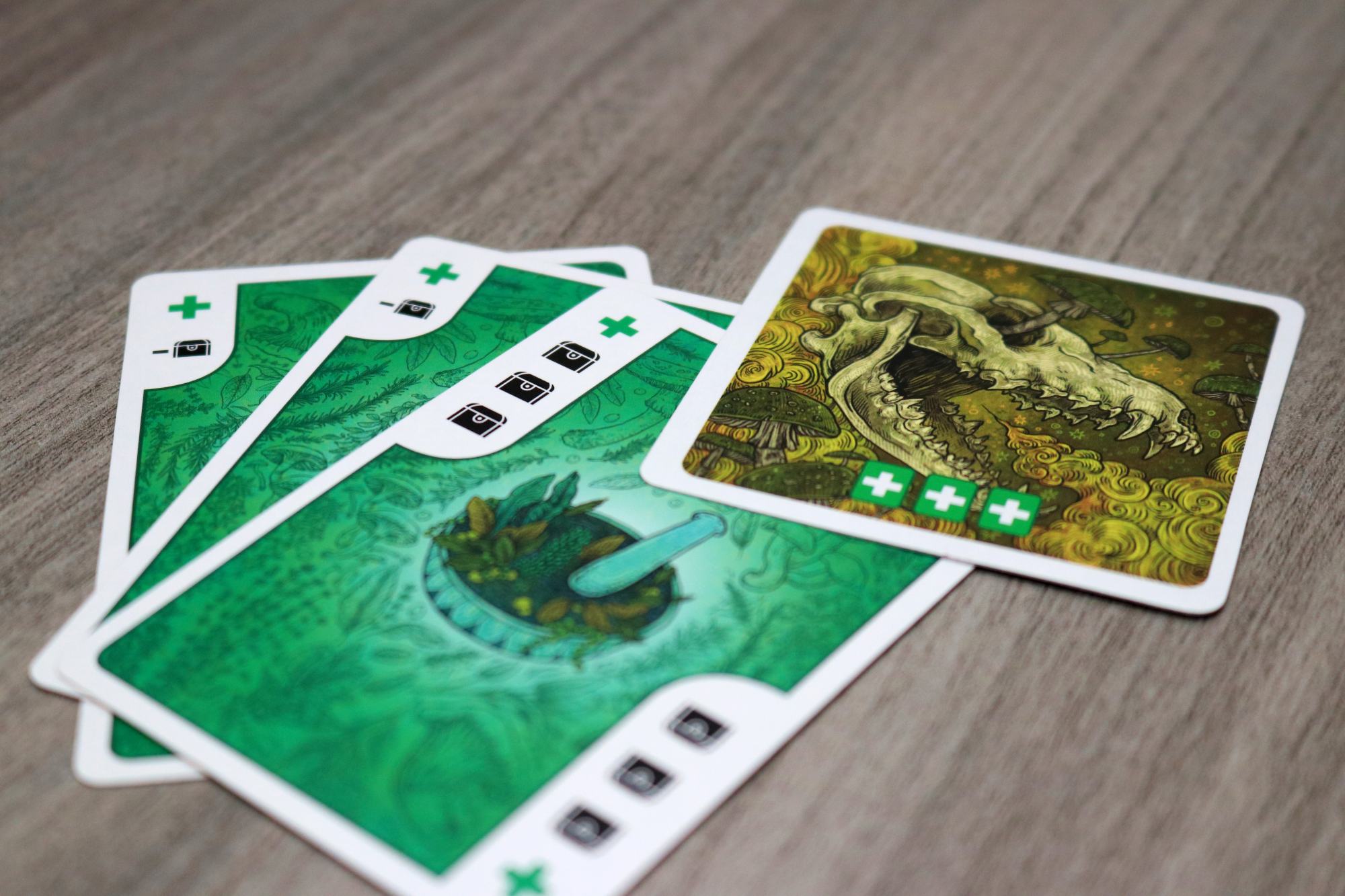
At the start of each round of Dawn, players add a card from their hand into their storehouse. This pile of cards is where players ultimately made the decision to be an “ally”, working together for the village, or be a “scoundrel”, hoarding treasure for yourself.
Anyone who collects 7 or mire treasure icons in their storehouse during the game are designated as scoundrels at the end of the game. At any time during the game, players can shift their allegiance to the group by swapping out a card in their storehouse during a round.
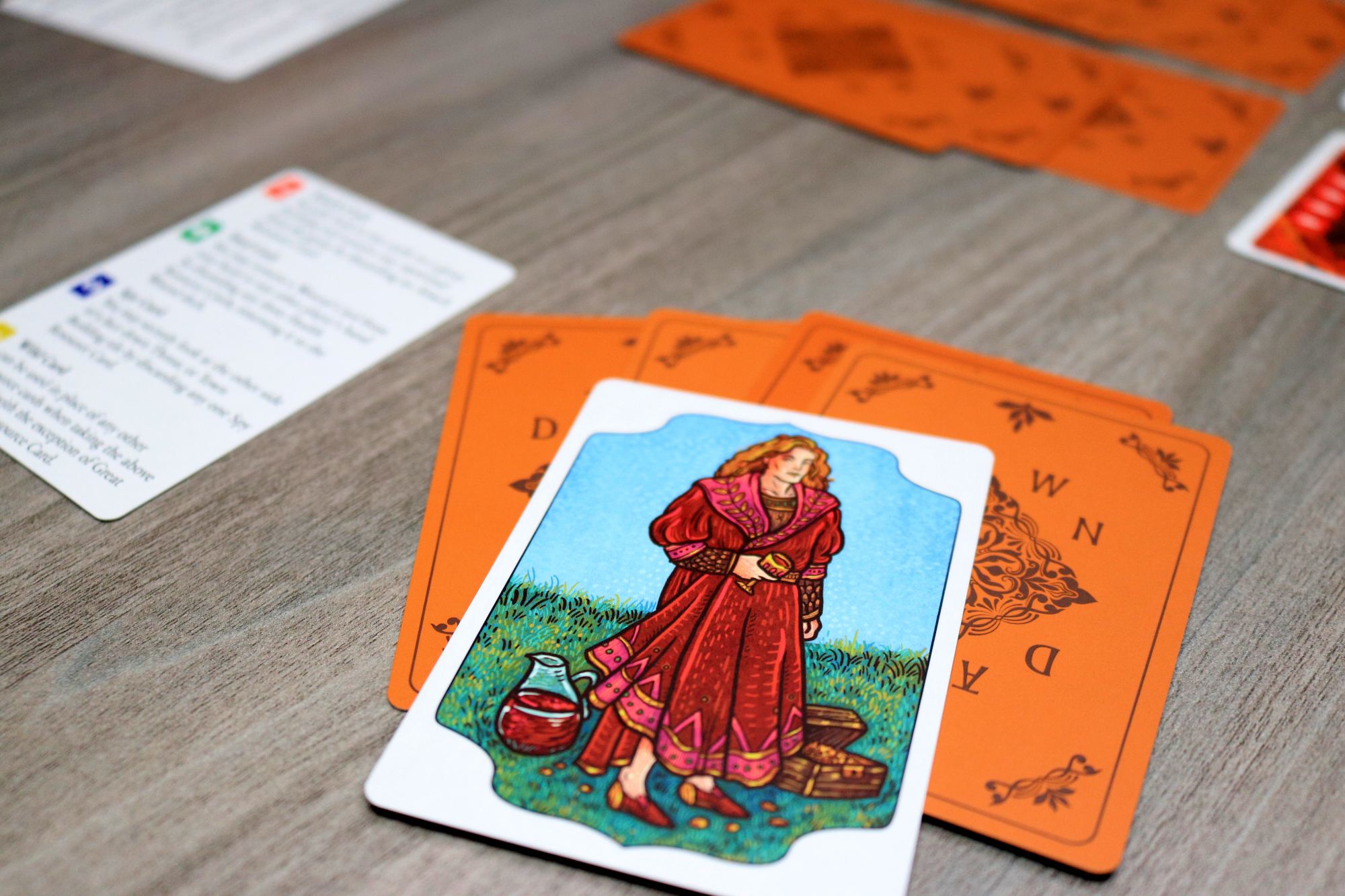
At the end of Dawn, players are going to reveal if they are allies (6 or less treasure in their storehouse) or scoundrels (7 or more treasure in their storehouse). Allies win the game if they earn 30 prosperity points per ally at the end of the game. If they fail to accomplish this goal, the scoundrel with the most treasure wins the game.
Shifting Alliances
Social deduction games are always a mixed bag with family and friends. We have a handful of friends that truly hate lying in a game. If the game requires them to be a hidden traitor, they won’t even give the game a chance. Dawn is unique because no one is assigned a “good” or “bad” role. Players get to decide how they play and how much conflict they want in the game.
Like many deduction games, the table talk during the game is a huge part of the game. Sharing why you believe someone is sabotaging the team and rallying other allies makes Dawn a memorable experience.
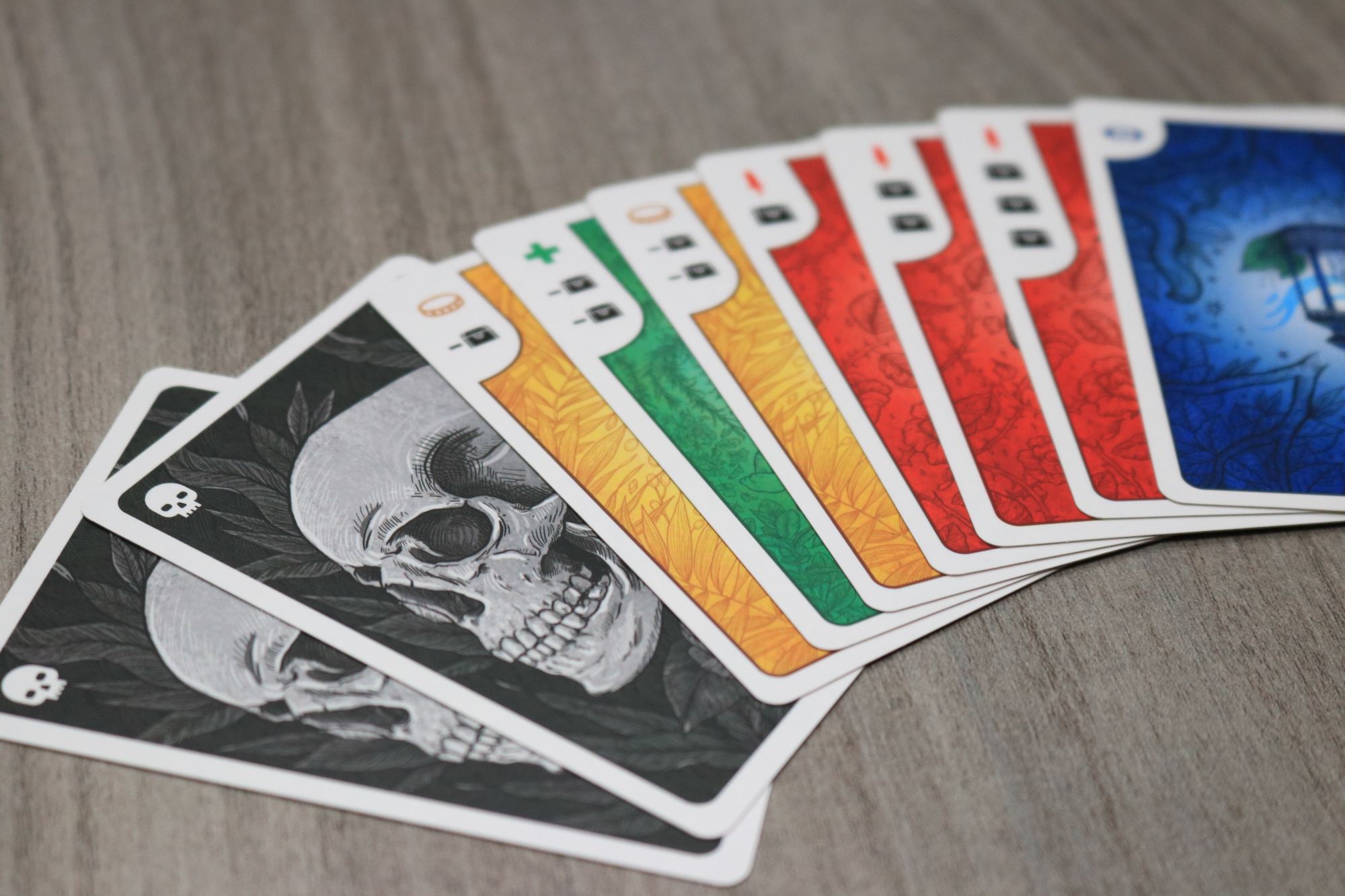
While players are able to share their thoughts on the motives of other players, there’s not a ton that can be done when you have saboteurs at the table. It’s possible that as the village struggles to build structures, everyone at the table could shift their alliance. The reveal at the end of each game of Dawn is dynamic and can bring surprises.
Players always have the opportunity to play this game straight-forward, working toward building a prosperous village.
Final Thoughts
Once you get your first game of Dawn in the books, future games should be seamless. Our first game was a little rocky and it stems from the structure of the micro rulebook that comes with the game. Dawn comes in a very portable box that leaves very little room for the rulebook that this game deserves.
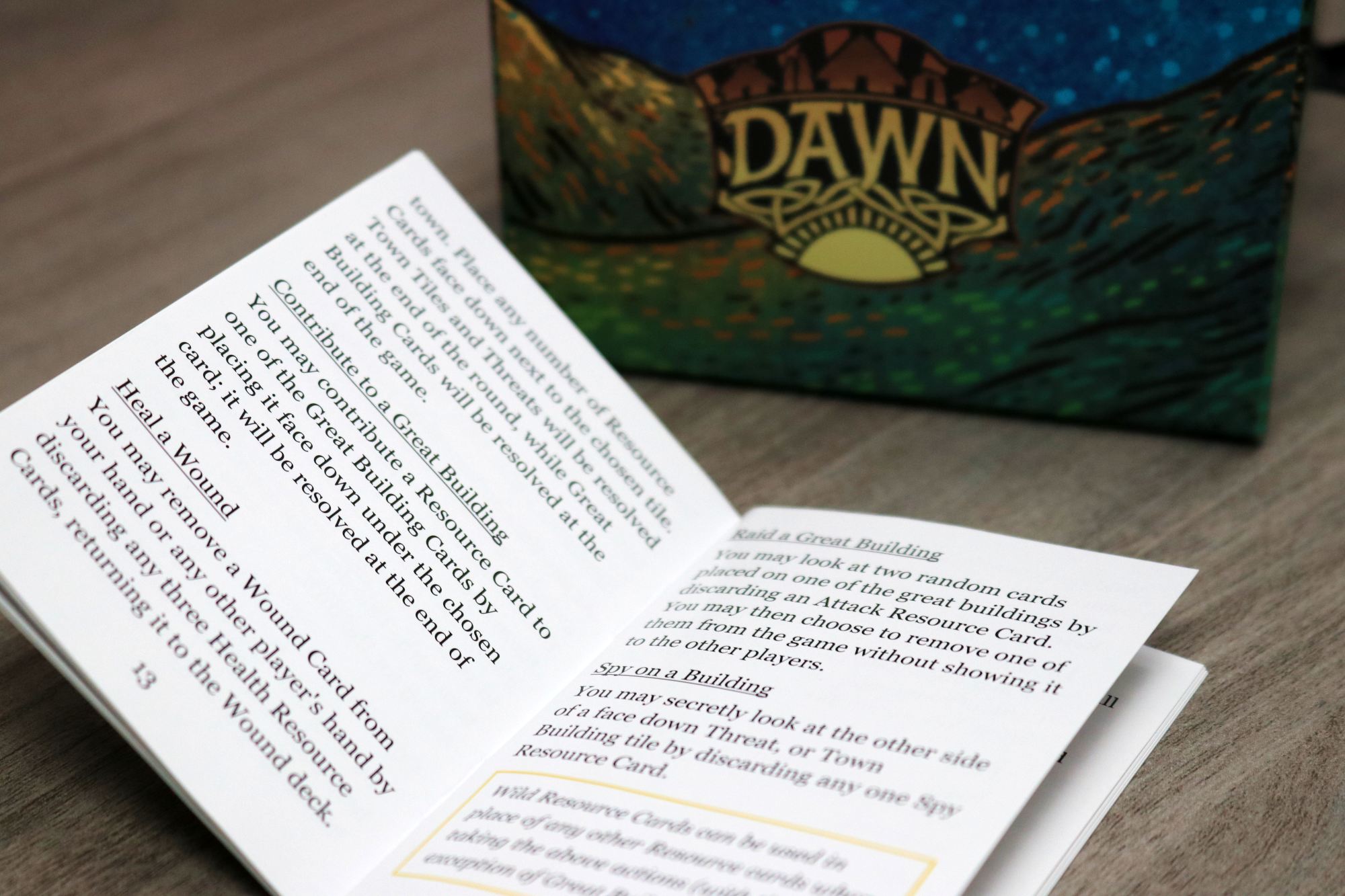
The rulebook fits in the palm of your hand and is mostly blocks of black text on white paper. I believe that this rulebook suffers because of its size. Some examples of gameplay with a nice layout would have done wonders when learning the game. Dawn has some issues with graphic design that can feel disjointed but this doesn’t impact the gameplay. The player aids and great building cards feel like they are placeholder artwork while the resource and wound cards are beautifully illustrated.
Inside the box you’ll find a couple envelopes with new tiles inside each. As you play the game, these envelopes can be unlocked when specific milestones are met. It’s not a “legacy” game, but it’s a nice little treat that encourages replayability.
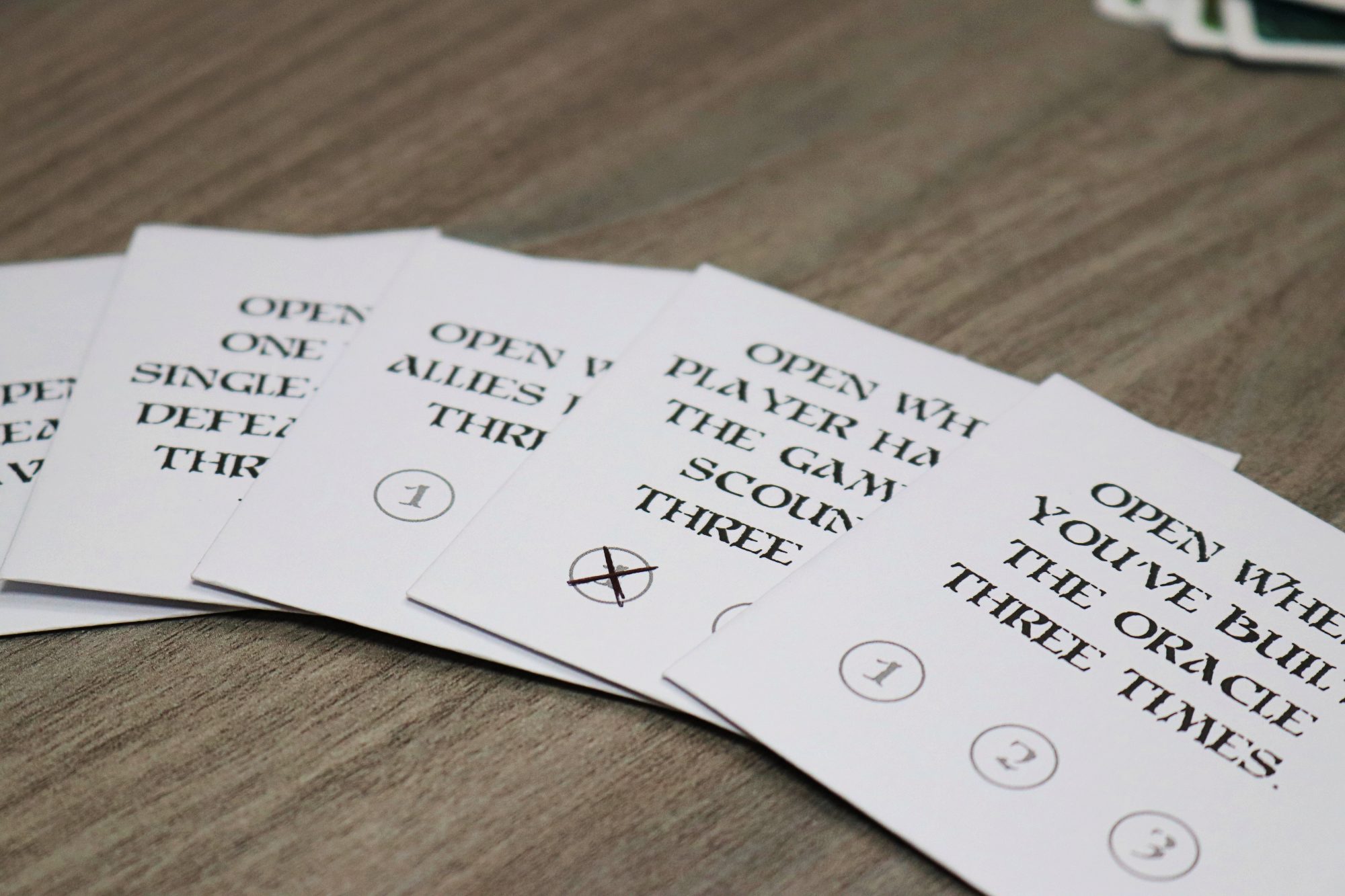
Dawn is a light strategy game that feels unique in the way that it allows players to change their allegiance throughout the game. The gameplay is easy to explain to new players once you get through the rulebook. Like most social deduction games, the stories that come from playing Dawn will be memorable.
You can order a copy of Dawn from the Green Meadow Games webstore today.
This game was provided to us by the publisher for review. Read more about our review policies at One Board Family.
Highs
- Shifting alliance from ally to scoundrel is a unique mechanic
- Game doesn’t force players to lie or deceive if they don’t want to
- End of game reveal feels dynamic and has plenty of surprises
Lows
- Rulebook could use improvements
- Thick cards are durable but tough to shuffle
Complexity

Time Commitment

Replayability

